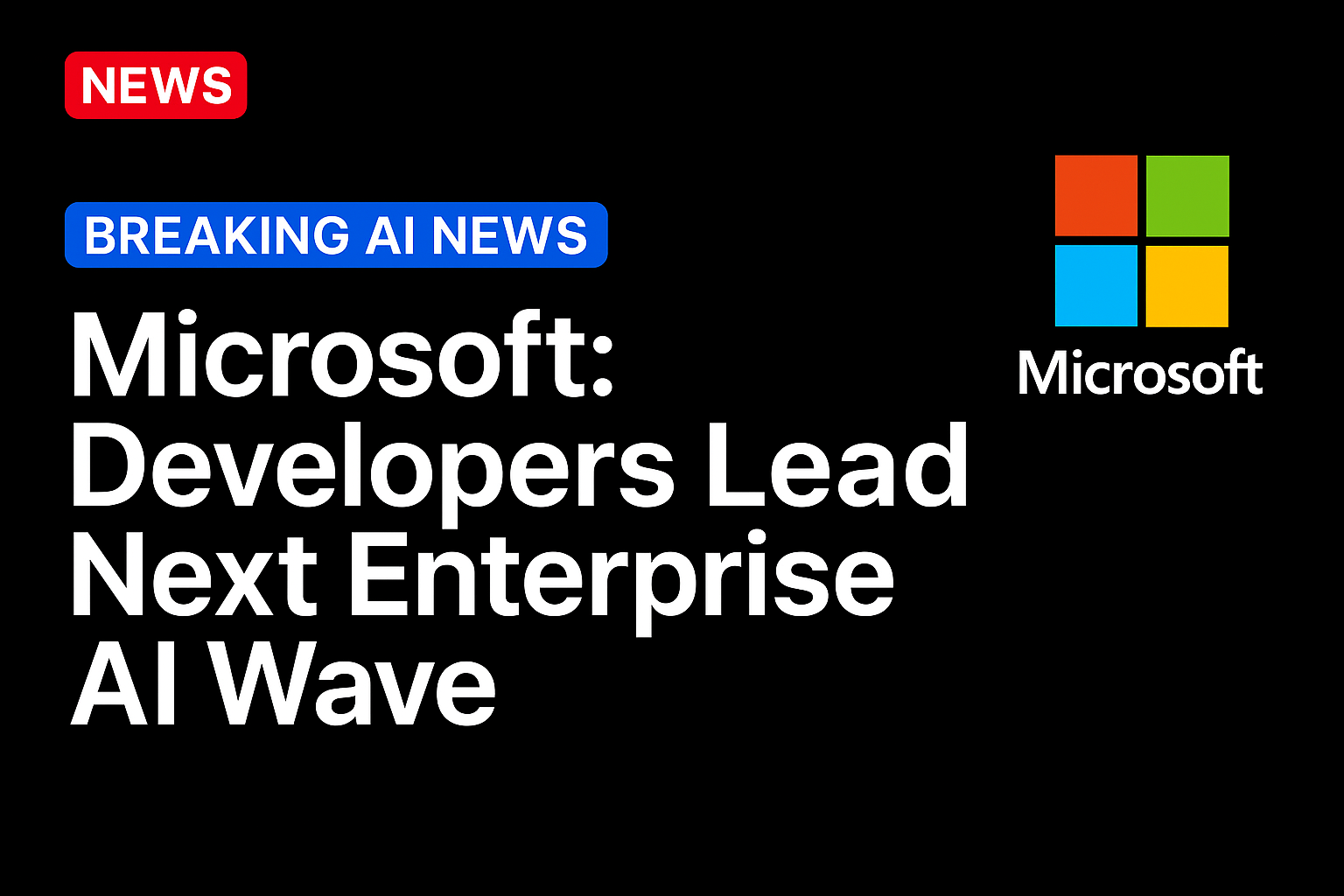
Microsoft believes developers will lead the next wave of enterprise transformation. The tech firm’s recent FYAI blog post outlines how artificial intelligence copilots and agents are redefining the software lifecycle, turning what was once a series of handoffs into a continuous feedback loop.
“AI doesn’t just change how we code. It redefines who gets to lead innovation,” said Amanda Silver, corporate vice president and head of product for apps and agents at Microsoft. “Developers are becoming the orchestrators of intelligent systems.”
In Microsoft’s vision, generative AI collapses traditional development stages from requirements and design to testing and deployment. Copilots translate natural language into working code, while agents handle updates, refactoring, and telemetry. That shift, Silver said in the Tuesday (Oct. 13) blog post, is comparable to how cloud computing automated infrastructure provisioning. “Cloud removed friction in managing resources. AI is now removing friction between ideas and implementation,” she said.
AI Ambition Meets Enterprise Reality
The developer-first narrative is compelling, but organizations face a more complicated picture when applying it. As PYMNTS reported in its enterprise AI guide, many firms still operate under tight cost, compliance and data-governance constraints. Building AI-driven workflows requires not just new tools but entirely new accountability frameworks.
“AI has to live where governance lives,” Silver said. That is why Microsoft has introduced its Azure AI Foundry and Model Connector Protocol, which aim to let developers integrate agents into enterprise systems while maintaining observability and control.
The same theme runs through the broader market. Enterprise leaders increasingly see artificial intelligence not as a single product but as a system-wide capability that needs structure. Developers are being asked to balance innovation with verification to build faster without compromising oversight. “Velocity has to come with verifiability,” Silver said.
Even smaller firms face trade-offs. PYMNTS found that AI coding assistants are giving startups and small businesses capabilities once reserved for large engineering teams. Yet democratization brings new risks if teams adopt tools without proper quality or security controls. AI may help generate code quickly, but scaling it safely still depends on disciplined developers and strong governance.
Platform Power and the Question of Control
AI’s growing influence also raises questions about concentration of power. In a Bloomberg feature published Sept. 3, Ashish Vaswani, who helped create the transformer neural network, cautioned that the industry’s dependence on a handful of large platforms could narrow innovation. He warned that focusing only on massive models and proprietary ecosystems might overshadow smaller, more efficient approaches.
Microsoft’s response has been to emphasize openness and interoperability. Silver said the company’s strategy is guided by “freedom within a framework” giving developers flexibility while embedding security, compliance, and transparency standards into its architecture. That principle, she added, is critical as AI systems become part of core enterprise infrastructure.
From Writing Code to Supervising Agents
What emerges from these intersecting trends is a redefinition of what it means to be a developer. The role is shifting from writing code to designing and supervising AI-driven behavior. Developers now oversee continuous systems that adapt, self-monitor and respond to feedback in real time.
Silver sees that evolution as both empowering and demanding. “AI will not replace developers. It will amplify them,” she said. “But amplification comes with responsibility. Developers have to understand how these systems think, not just what they output.”
Source: https://www.pymnts.com/

